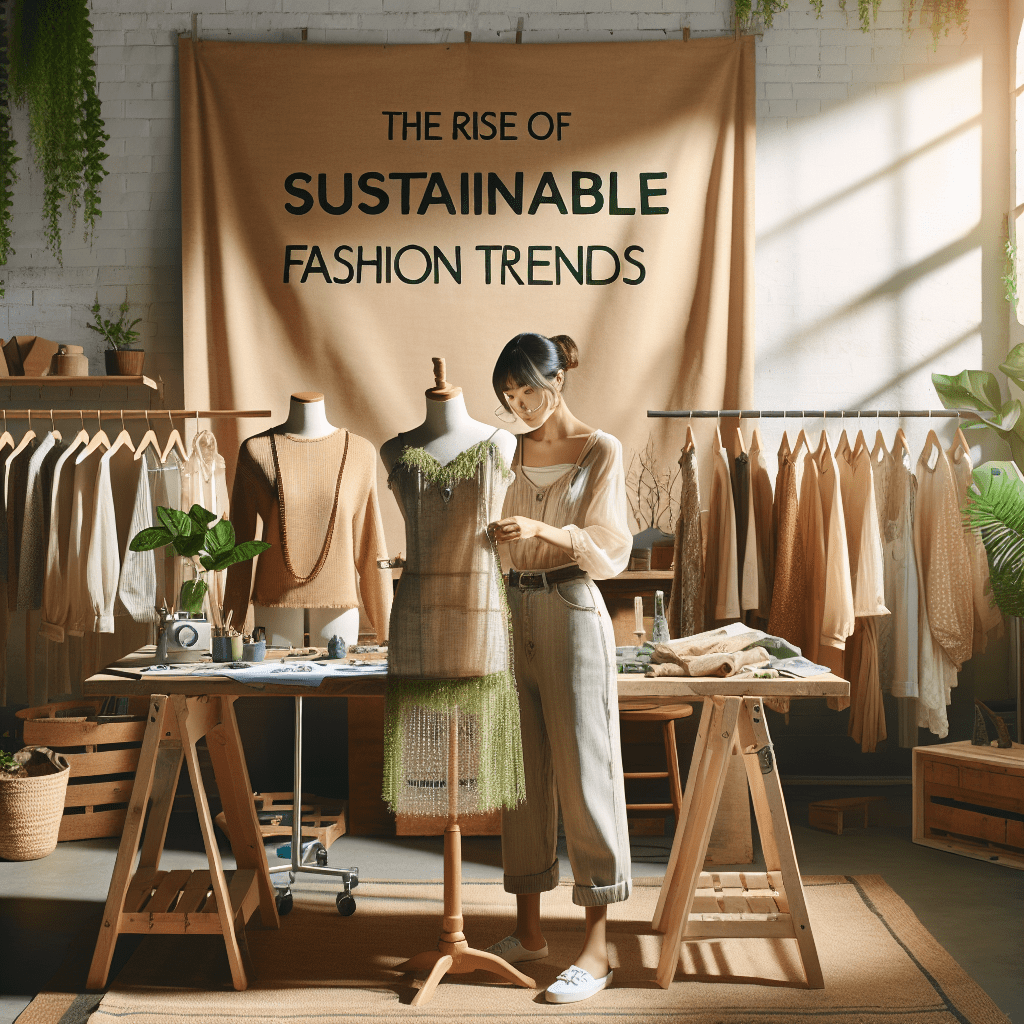In recent years, the fashion industry has been experiencing a significant shift towards sustainability. More and more brands are choosing to prioritize ethical and eco-friendly practices in their manufacturing processes, and consumers are becoming increasingly aware of the environmental and social impact of their clothing choices. This shift towards sustainable fashion is not just a passing trend; it is a movement that is here to stay. In this article, we will explore the rise of sustainable fashion trends and why they are important for the future of the industry.
The Importance of Sustainable Fashion
Sustainable fashion is about more than just using organic materials or recycling old clothing. It encompasses the entire life cycle of a garment, from design and production to distribution and disposal. By choosing sustainable fashion, consumers can reduce the negative impact of the fashion industry on the environment and support ethical labor practices.
One of the key reasons why sustainable fashion is important is its impact on the environment. The fashion industry is one of the largest polluters in the world, producing massive amounts of waste and emissions. By opting for clothing made from sustainable materials and produced using eco-friendly processes, consumers can help reduce the industry’s carbon footprint and minimize its impact on the planet.
Another important aspect of sustainable fashion is its impact on social welfare. Many fast fashion brands rely on cheap labor and unsafe working conditions to produce their clothing. By choosing to support brands that prioritize fair labor practices and pay their workers a living wage, consumers can contribute to a more ethical and equitable fashion industry.
The Rise of Sustainable Fashion Trends
In recent years, sustainable fashion has been gaining popularity among consumers and designers alike. More and more brands are incorporating sustainable practices into their collections, using materials such as organic cotton, recycled polyester, and Tencel. These materials are not only better for the environment but also for the consumer, as they are often more durable and of higher quality than traditional fabrics.
In addition to using sustainable materials, many brands are also adopting eco-friendly production processes, such as dyeing and finishing techniques that minimize water usage and waste. Some brands are even taking it a step further by implementing circular fashion models, where clothing is designed to be easily recycled or composted at the end of its life cycle.
Consumers are also becoming more conscious of the impact of their clothing choices and are seeking out brands that align with their values. According to a recent survey, 92% of consumers say it is important for companies to take a stand on social and environmental issues. This shift in consumer behavior is driving the demand for sustainable fashion and pushing brands to adopt more transparent and ethical practices.
Conclusion
The rise of sustainable fashion trends is a positive development for the industry and the planet. By choosing to support brands that prioritize sustainability and ethical practices, consumers can help reduce the environmental and social impact of the fashion industry. As more and more brands adopt sustainable practices, we can create a more sustainable and equitable future for the fashion industry.
FAQs
What is sustainable fashion?
Sustainable fashion involves using eco-friendly materials and production processes to reduce the environmental impact of the fashion industry.
Why is sustainable fashion important?
Sustainable fashion is important because it helps reduce the environmental and social impact of the fashion industry, while promoting ethical practices and consumer awareness.
How can I support sustainable fashion?
You can support sustainable fashion by choosing to buy clothing from brands that prioritize sustainability and ethical practices, and by educating yourself about the impact of your clothing choices.
Tip:
When shopping for clothing, look for certifications such as Fair Trade, GOTS (Global Organic Textile Standard), or OEKO-TEX Standard 100, which indicate that the garment meets certain ethical and environmental standards.
#Rise #Sustainable #Fashion #Trends

